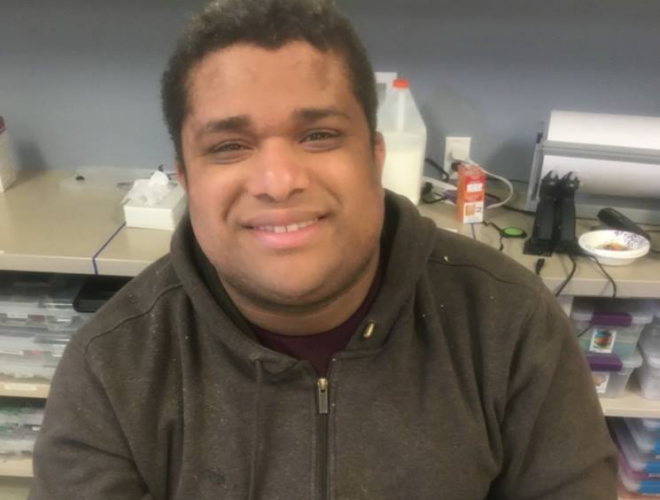 When Chester Dudley was 3 years old, his mother, Stella Ogiale, enrolled him into a child care center located near their home in Philadelphia, Pennsylvania.
When Chester Dudley was 3 years old, his mother, Stella Ogiale, enrolled him into a child care center located near their home in Philadelphia, Pennsylvania.
After a few months, Ogiale received a startling message from the center telling her that there might be something wrong with Chester.
“They told me I needed to get him checked,” Ogiale said. “When I heard that, I became so emotional and upset that I stopped taking him there.”
She thought her son’s hyperactive behavior was like any other child’s, but to give her peace of mind, she decided to have him evaluated.
“Chester underwent testing and I was told he had a mild intellectual disability, but nothing else,” Ogiale said.
Two years later, the family moved to Seattle. Ogiale noticed Chester’s behavior was worsening and decided it was best he be evaluated again.
“He was 5 years old and at the age where he would be starting school, so I was worried,” she said. “That’s when I decided to take him to Seattle Children’s for help.”
Navigating a new landscape
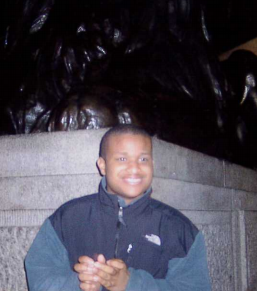 Chester was diagnosed with autism spectrum disorder (ASD) and began receiving treatment at Seattle Children’s Autism Center.
Chester was diagnosed with autism spectrum disorder (ASD) and began receiving treatment at Seattle Children’s Autism Center.
“I think at first I was in denial that he had autism,” Ogiale said. “I felt guilty and didn’t want to believe it.”
Chester had a limited ability to communicate and exhibited aggressive behavior.
“He would throw things, and hit and push people,” Ogiale said. “You could tell that he did it out of fear.”
Over the next several years, Ogiale did her best to normalize Chester’s life as best as possible by continuing his schooling and enrolling him into special needs programs.
“I worked with the school district to provide him with support,” Ogiale said. “There were many people, such as teachers and therapists, that helped him function in his daily life.”
However, when Chester reached his late teens, Ogiale had growing concern about the resources that would be available for her son once he completed school and entered adulthood.
Through the Autism Center, Chester began seeing Dr. Gary Stobbe, program director of adult autism transitional services, who helped to Ogiale navigate Chester’s care when he turned 19.
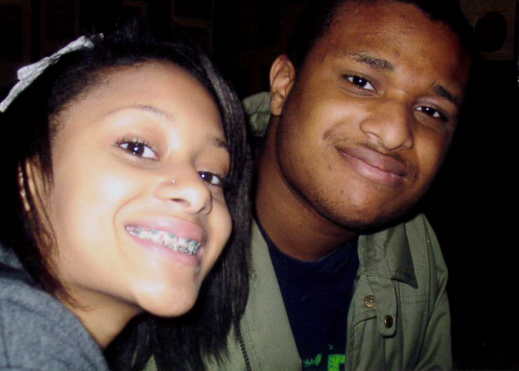
“When I met with Chester for the first time, his mother and I discussed the strategies she was using to manage Chester’s behavior,” Stobbe said. “We realized that the strategies that worked for him when he was younger did not work for him as an adult.”
With Stobbe’s help, Ogiale began to have a better understanding of Chester’s desires in life, even though he couldn’t communicate them in a conventional way.
“Although he’s minimally verbal and presents prominent autism behaviors, I could tell that Chester wanted was to be treated like an adult, just like anyone else his age,” said Stobbe.
During that first encounter with Stobbe, Ogiale was caught in disbelief when she saw Chester do something that he hadn’t done before.
“While Dr. Stobbe was asking Chester some questions,” Ogiale said, “Chester laughed.”
This was a pleasant surprise to Ogiale, as she thought Chester’s ability to communicate was extremely limited.
“That opened the gate for me to better recognize the way Chester communicates,” Ogiale said. “Within a matter of minutes, Dr. Stobbe got Chester to feel comfortable and start talking to him.”
New doors to opportunity
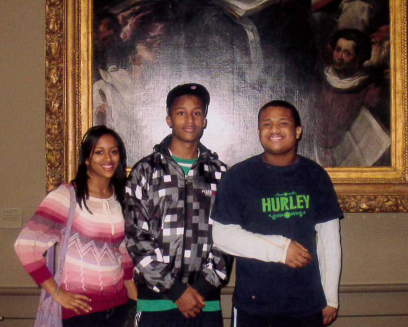
As Stobbe continued to work with Chester into his adulthood, seamlessly transferring his care from the Autism Center to the University of Washington Adult Autism Clinic, he saw positive changes in Chester’s behavior.
“Chester began adopting more age-appropriate behaviors,” Stobbe said. “He seemed happier and more confident.”
By the time Chester was about 22 years old, all his siblings had moved away from home, leaving him without the company he was used to having around. Ogiale sensed Chester was lonely and that he needed a place where he could meet new people and have friends.
“There has been a lack in educational, recreational and vocational opportunities once people with ASD and other developmental disabilities turn 21 and age out of school,” Stobbe said. “Often parents or caregivers will feel lost, as the need for these services are still incredibly important.”
Then, Ogiale learned about a new program through Seattle Children’s that provided individuals 18 years and older with developmental disabilities, including autism, classes and activities designed to offer meaningful opportunities for adults to build on strengths, increase confidence and promote independence.
“Someone from Dr. Stobbe’s team presented this to us and asked if we’d be interested,” Ogiale said. “I immediately said, ‘Absolutely!’
The Seattle Children’s Alyssa Burnett Adult Life Center, which opened its doors in July 2014, was founded by Charles and Barbara Burnett, parents of Alyssa, a young woman living with autism spectrum disorder.
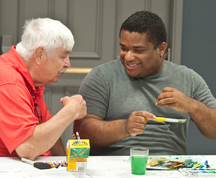
They had been working to address the disparity in opportunities for adults like Alyssa, founding the Tessera Center for Lifelong Learning in 2004. A decade later, the Burnetts and Tessera donated $7 million, including Tessera’s space in Bothell, Wash. to launch the Alyssa Burnett Adult Life Center, which offers a variety of 12-week classes, ranging from art to yoga to independent living skills, taught by community members who are experts in the class topics with guidance from Seattle Children’s behavior specialists.
“It was the perfect place for Chester,” Ogiale said. “He was able to get involved in many different activities such as dance and music. Chester has always loved music and for him to be able to participate gives him so much joy and happiness.”
Not only did Chester get to engage in the arts, he also learned other life skills such as cooking and swimming.
“He can now confidently heat up his own food in the microwave,” Ogiale said. “This was a big deal because there was a time when he couldn’t do that. The ability to operate the microwave came from the skills he learned in the cooking class.”
Ogiale says swimming has by far been his favorite activity.
“We live near a lake and before I was never comfortable taking him on a boat ride because he couldn’t swim,” she said. “Now, through the program, he has learned how to swim and does it two days a week. I can tell that it makes him relaxed and feel a sense of worth.”
Building a happy community
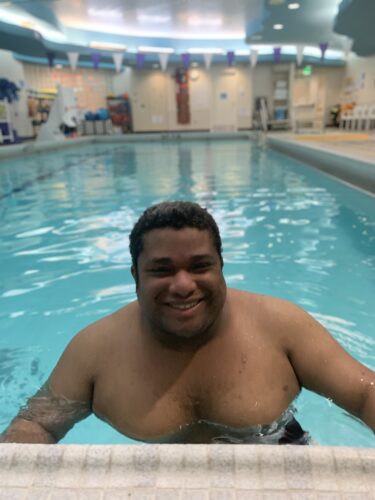
With the continuous care Chester receives from Stobbe and the ongoing activities he participates in at the Alyssa Burnett Center, Ogiale couldn’t be more thankful to see her son thrive as an adult.
“He’s now 28 years old and I can say that he’s much happier,” Ogiale said. “I think he feels fulfilled and has a new appreciation for life. It has given him something to look forward to.”
It’s a rewarding feeling for Stobbe when he sees positives changes in patients like Chester.
“It’s extremely gratifying to see Chester continuing to be happy, due in large part to the opportunities that the Alyssa Burnett Center has provided him with,” he said. “It can be heartbreaking to see people who can be helped but don’t have access to the services they need. That’s why places like the Alyssa Burnett Center, that give individuals like Chester a supportive community, are incredibly important.”
Ogiale knows the future isn’t clear for Chester but remains hopeful.
“Previously with the Autism Center, and now at the Alyssa Burnett Center, Seattle Children’s has provided us with a holistic approach to Chester’s care,” Ogiale said. “They have expanded Chester’s scope on life and given him a sense of purpose. I couldn’t ask for anything more.”
Resources:

